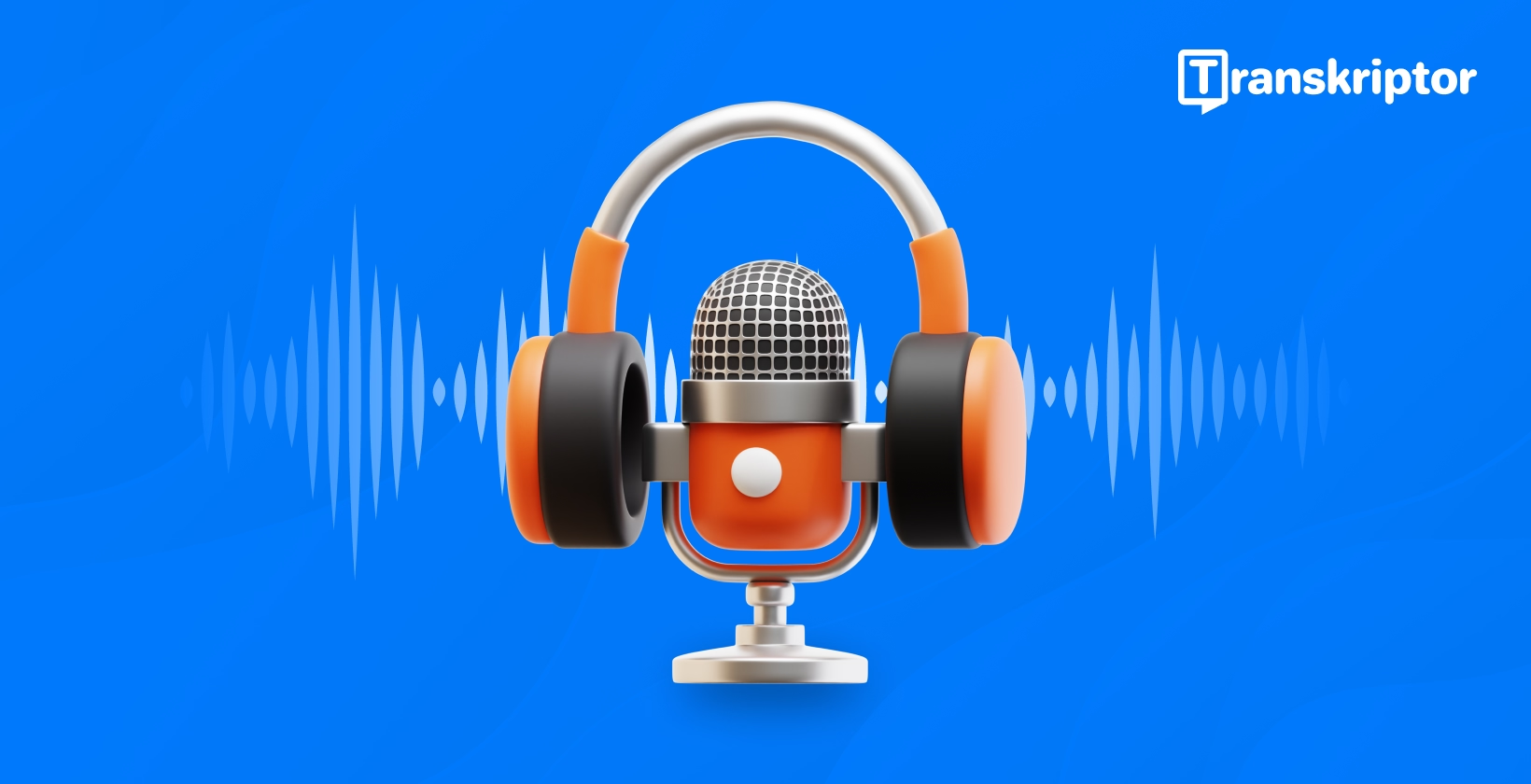What Makes a Podcast App Great?
At the very least, a good podcast app must have a rich collection of podcasts in multiple genres, be easy to use, and make excellent recommendations. The following sections detail these requirements.
Key Features to Look for in a Podcast App
With podcasts gaining popularity in recent times, plenty of so-called good apps are available on various platforms. Irrespective of your needs and listening preferences, here are a few basic features that are a must in podcast apps:
Easy-to-use Interface:
You must be able to seamlessly browse through the podcast app and search for your desired podcasts with a variety of filters.
Features:
The app must have features like smart speed, clip sharing, voice boost, and similar for a personalized listening experience.
Customization and Personalization:
Based on your listening pattern, the app must recommend similar podcasts, create playlists, and organize subscriptions.
User Profile:
Your profile must have tabs for account details, listening statistics, and more.
Top 7 Podcast Apps for Every Listener
Podcast listening isn’t as inconvenient as it was two decades back. Thankfully, tons of apps, tools, and players make podcasts accessible. But most of them aren’t great, so here are some of the best options:
1. Spotify: Best for Music and Podcasts in One Place

Spotify is a music streaming service that has become a popular podcast-listening platform. To this date, it’s home to 4.7 million+ podcasts, so you’ve got something fresh to listen to every time. It’s free, provided you’re willing to hear ads. Upgrading to its premium version has perks like ad-free and offline listening, unlimited skips, and download podcasts.
2. Apple Podcasts: Ideal for iOS Users with a Vast Library
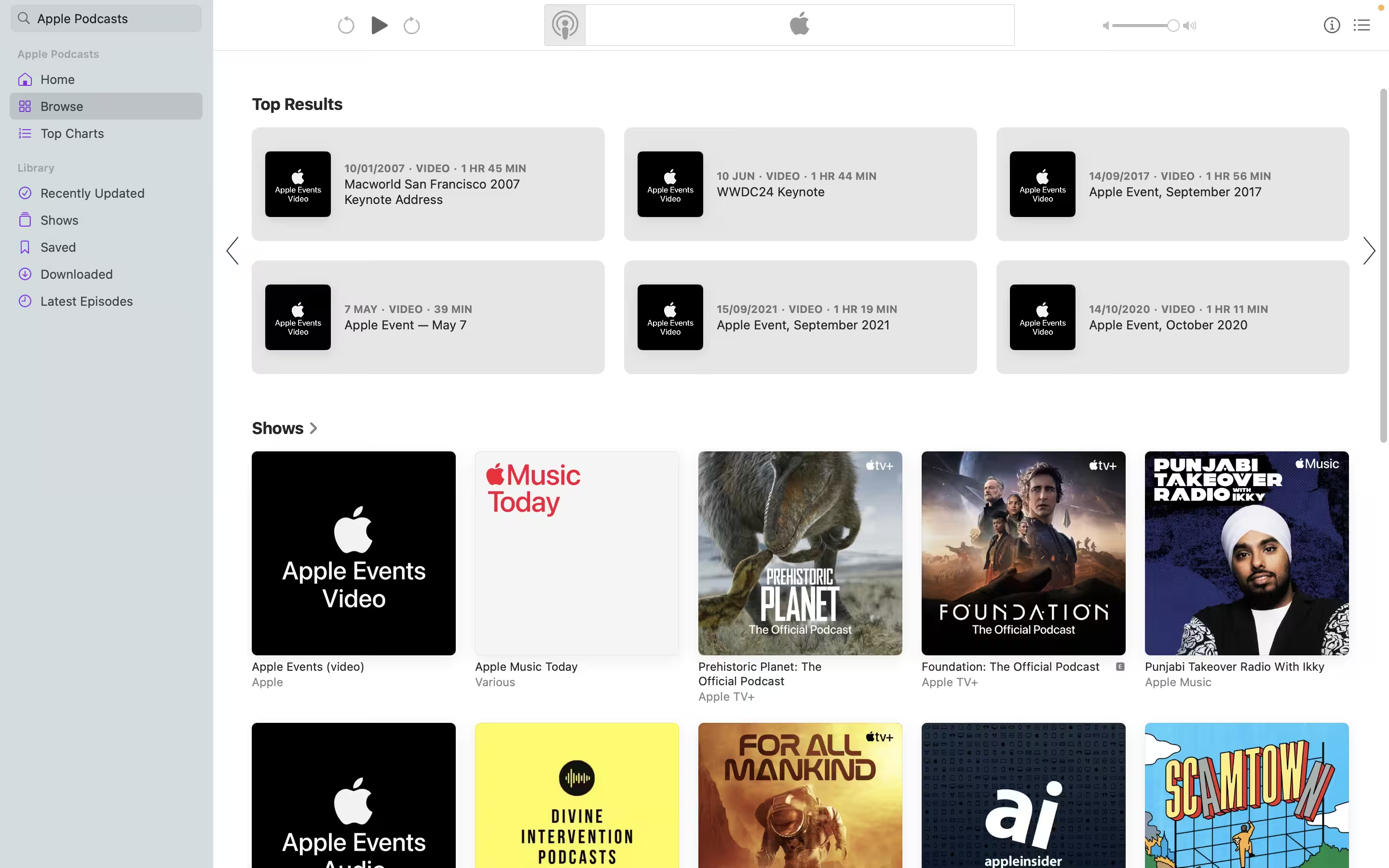
Apple Podcasts is an Apple device-only podcast-listening platform. It has a large podcast collection and provides curated and personalized recommendations so you can discover fresh and new shows. Although it’s free-to-use, you can opt for its paid subscription to support your favorite podcaster and unlock benefits like ad-free listening and early access to new shows and bonus episodes. Everything’s done right, but the app interface looks clunky and difficult to navigate.
3. Google Podcasts: Perfect for Seamless Android Integration
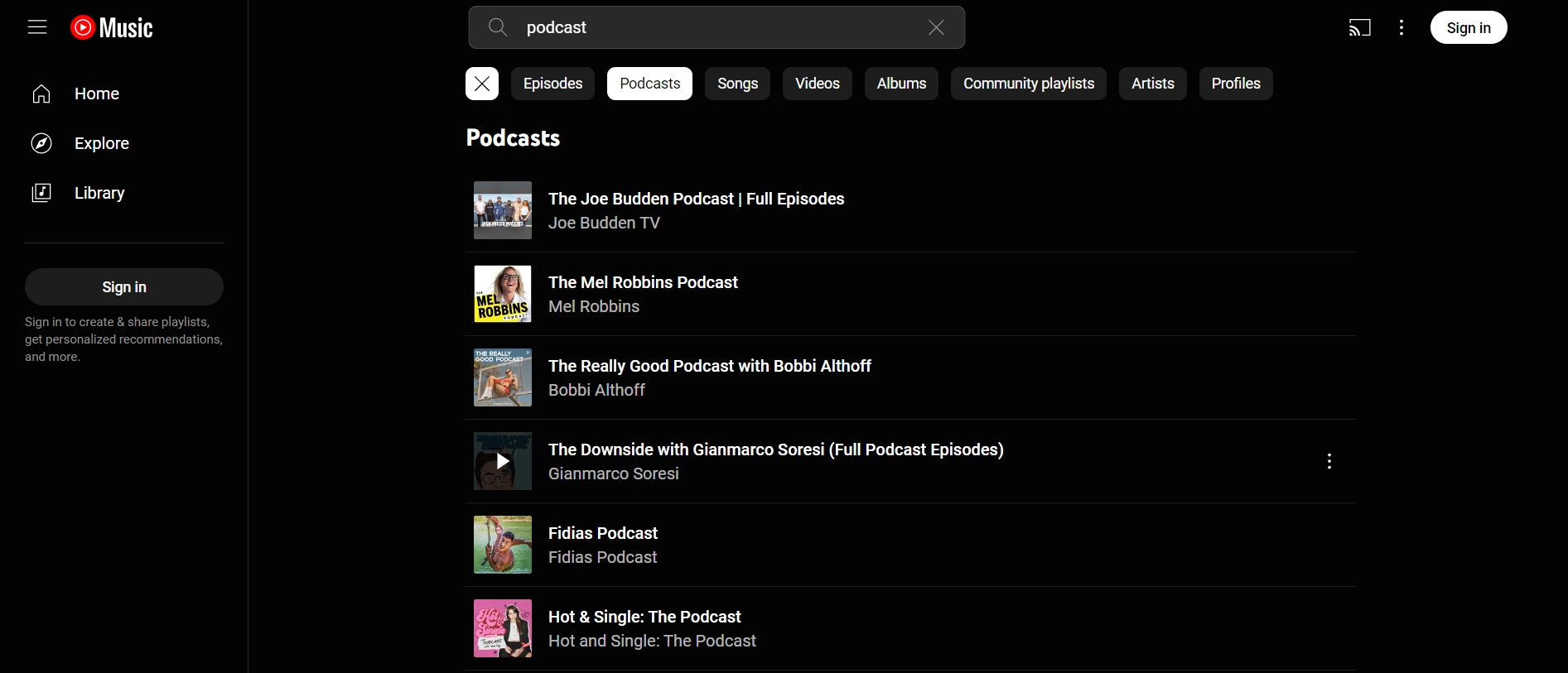
Launched in 2018, Google Podcasts is a great platform for listening to podcasts for free and getting personalized recommendations. Unlike Apple Podcasts, it’s available to download on macOS, Windows, Android, web, and iOS. However, it has shut down and migrated to YouTube music, and premium subscribers can play podcasts in the background, download them, and get personalized recommendations.
4. Overcast: Great for Advanced Playback Features
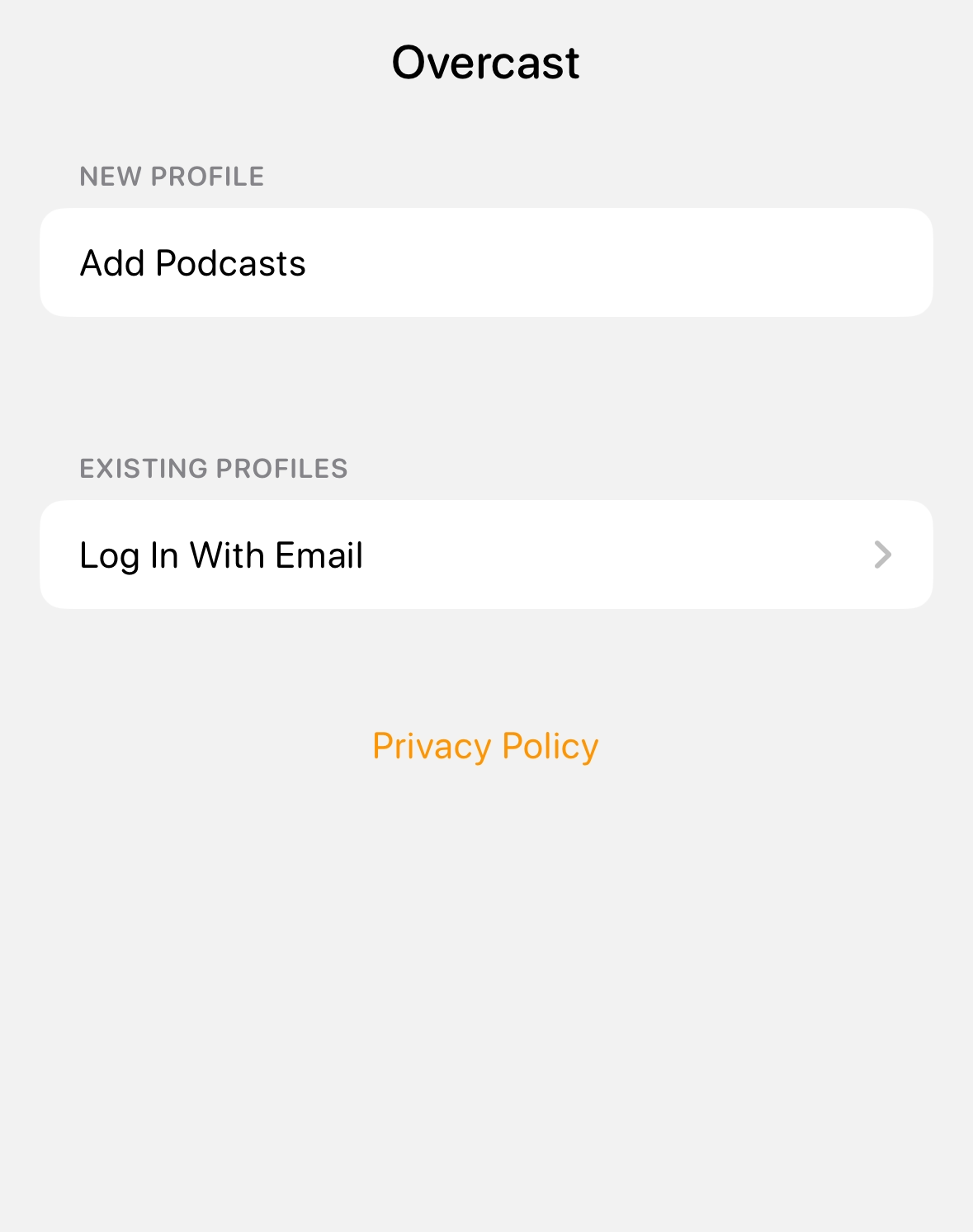
Overcast is a fully-featured podcast app available only on iPad, iPhone, and Apple Watch. It has a simple, intuitive interface with many powerful features, like Smart Speed, which boosts the playback speed without any audio distortion. Another feature called Clip Sharing lets you share a 60-second audio/video from any podcast on any social media platform. And its Voice Boost feature enables you to enjoy podcasts even in a noisy environment.
5. Pocket Casts: Best for Customization and Discoverability
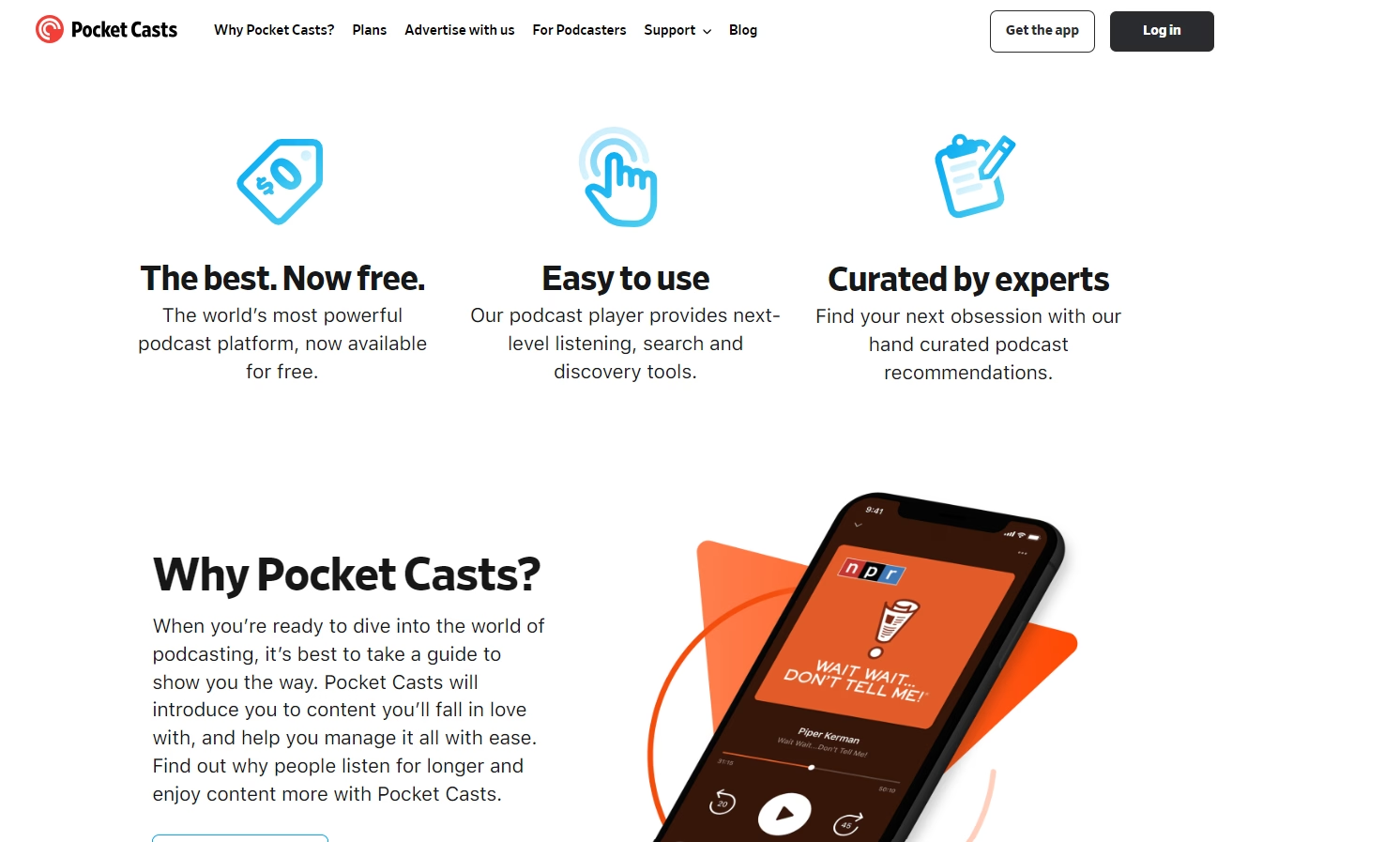
Pocket Casts is another podcast app that is full of features and easy to use. You can easily browse the recommendations, subscribe, or listen directly to your favorite podcasts. You can even make a playlist of your favorite ones or download them to play offline. There are plenty of features, such as a volume booster, speed control, trim silence, and a sleep timer for a seamless listening experience. Despite the good things, many users have complained about a buggy or a laggy interface.
6. SiriusXM: Ideal for Comedy and Exclusive Content

SiriusXM, formerly known as Stitcher, lets you listen to an expertly curated podcast series on its iPhone, iPad, Android, and iPod Touch app. Besides flexible listening preferences, SiriusXM offers plenty of channels and podcasts to listen to, including SiriusXM originals, Marvel, music, and talk shows of all genres.
It has a free auto subscription, which allows you to access dozens of ad-supported channels. On the other hand, mobile listeners only get a free trial, and once it's over, you’re automatically enrolled in a subscription.
7. Castbox: Excellent for In-App Podcast Community Features
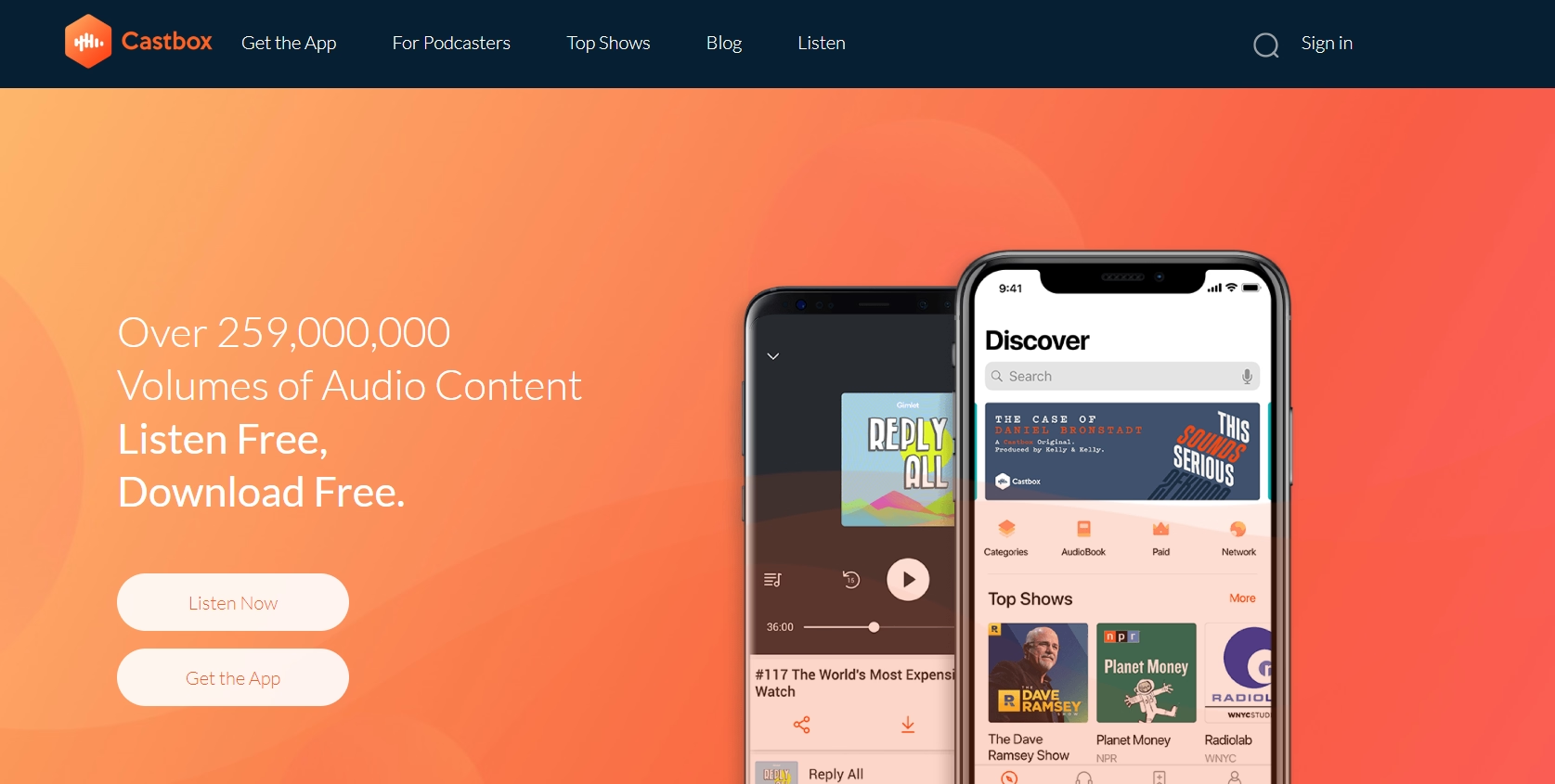
Castbox is available on Android and iOS and supports 50 million+ podcasts, audiobooks, and on-demand radio programs in 70+ languages. Similar to Pocket Cast, it’s laid with features like silence trimming, speed controls, volume booster, sleep timer, and others. Aside from being just a podcast playback app, it lets a whole community of listeners comment and interact with each other. The interface, however, is difficult to navigate, and the number of ads in its free version can be annoying.
How Audio-to-Text Features Enhance Podcast Listening
Transcription services convert audio into text, allowing listeners to enjoy podcasts differently, including how to interview transcription . Whether you're someone who prefers reading along with a podcast or you need to revisit specific parts of an episode, transcripts are an incredibly useful tool. These written records allow people with hearing impairments, those in noisy environments, or non-native speakers to access content in a way that best suits them, including how to transcribe youtube shorts .
Transkriptor: Best Transcription Service for Podcast Listeners:
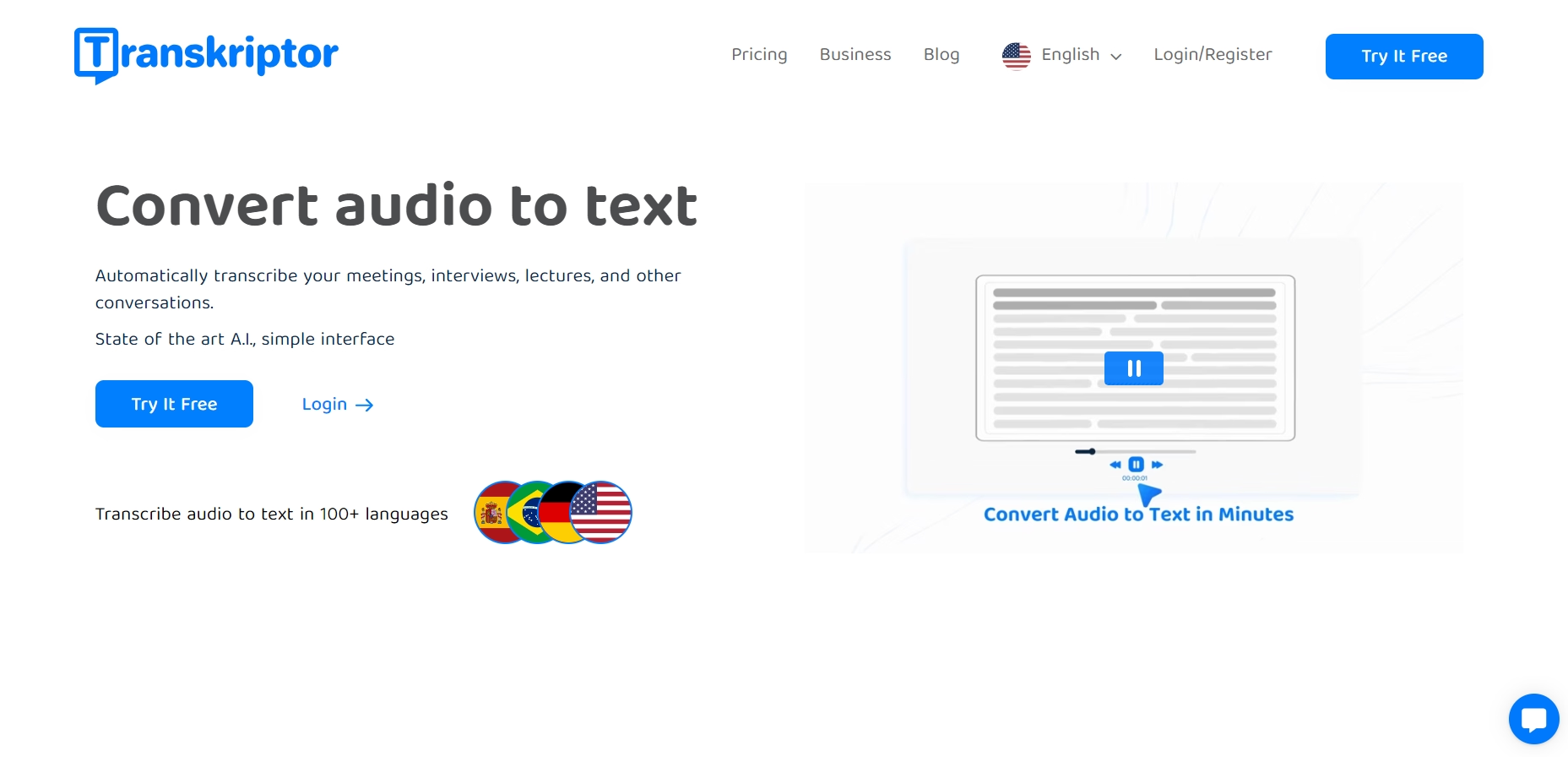
Transkriptor is an easy-to-use tool that transforms your favorite podcast episodes into written text. Whether one is on the way to or from work, multitasking, or just simply likes reading more than listening, Transkriptor makes podcasts more accessible by offering near-perfect transcriptions in minutes. Supporting more than 100 languages, it's ideal for those who would want to read through or revisit key moments.
- Accessibility: Just right for those who work in quiet environments, individuals who have hearing problems, or for non-native speakers as it is in written form for easy follow-through.
- Convenience: You get to breeze through episodes, favorite moments, or revisit sections all in the blink of an eye.
- Seamless experience: be it mobile, web, or Chrome extension, access and read your transcripts anywhere.
Benefits of Using Transkriptor for Podcast Listeners
Transkriptor automatically converts podcast audio into downloadable text files (e.g., TXT, Word, SRT) with 99% accuracy. You can even use its in-app editing tool to refine transcripts and make quick adjustments. The platform is available on both Android and iOS, so you can read or edit your transcripts anywhere, anytime.
Enhancing Accessibility with Transcription
Podcast transcripts increase accessibility for everyone, especially those who are hard of hearing or prefer reading. They make it easier to follow along, revisit specific points, or share memorable quotes. With support for over 100 languages, Transkriptor ensures that podcasts can be enjoyed by a global audience.
Tips for Choosing the Right Podcast App for Your Needs
When selecting the best podcast app based on your requirements, you must consider a set of criteria such as user interface, customization options, content types, and if it supports transcription. These are detailed as follows:
Consider Your Preferred Features and Content Types
Consider going for an app that offers basic playback features like rewind, play/pause, and fast forward. Many apps have additional features such as sleep timers, playback speeds, and others for a customized listening experience. However, all such features are in vain if you don’t find your ideal content type. So, select an app with a rich collection of podcasts covering various interests and genres. Also, check if it includes popular niches and shows that match your preferences.
Evaluate the User Interface and Customization Options
There’s no point in having an app full of quality podcasts of various genres and niches where you struggle to navigate between tabs and pages. An app with an easy-to-use interface is desirable, irrespective of your listening needs. Also, evaluate the apps for customizations like episode queueing, playlist creation, and personalized recommendations based on your listening habits.
Look for Apps that Support Transcription and Voice-to-Text Features
Other than the exclusive listening features, mp3 to text transcriptions let users generate show notes, make edits, and seamlessly boost the visibility and accessibility of the podcasts. Thus, those with limited listening time can get a brief preview of a podcast and go through it promptly.
Conclusion:
Choosing the right podcast app makes a significant difference in your listening experience. Whether you're looking for features like personalized recommendations, ease of use, or transcription tools for added accessibility, there’s an option for every listener. Apps like Spotify and Apple Podcasts are perfect for discovering new content, while tools like Transkriptor enhance your ability to engage with podcasts in a way that suits your lifestyle.
